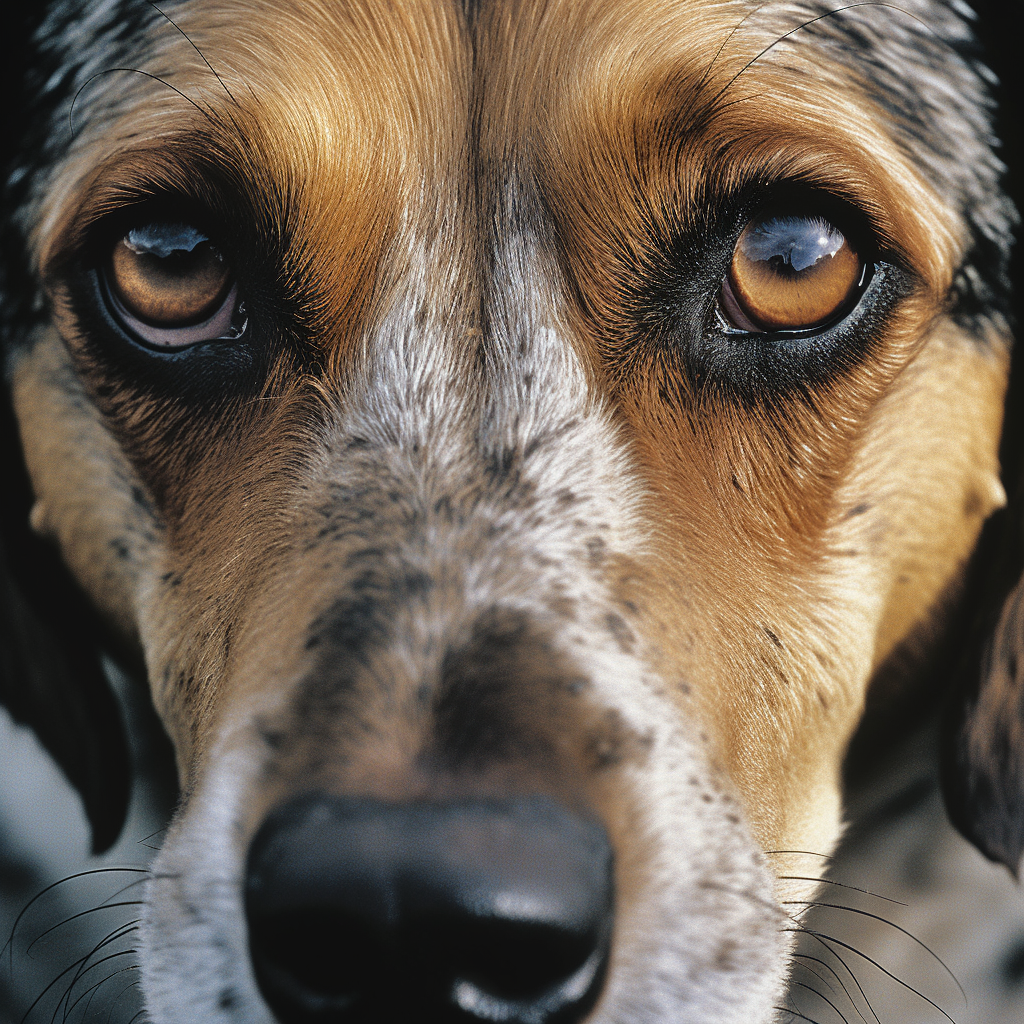Should You Be Concerned If Your Dog Has Yellow Eyes?

Introduction:
It's natural to be observant and concerned about any changes in your pet’s appearance. One such change that may cause worry is the development of yellow eyes. While yellow eyes in dogs can be a sign of various underlying health issues, it's essential to understand the possible causes and when to seek veterinary attention. In this post, we will explore the reasons behind yellow eyes in dogs, potential health implications, and the appropriate actions to take.
Possible Causes for Yellow eyes in Dogs
One possible cause of yellow eyes in dogs is jaundice, a condition that occurs when there is an excessive buildup of bilirubin in the bloodstream. Liver dysfunction or diseases affecting the liver, such as hepatitis or liver cancer, can lead to jaundice and subsequent yellowing of the eyes.
Infections and inflammation of the eye can cause yellowing due to the accumulation of pus or discharge. Conditions such as conjunctivitis or uveitis can present with yellowish discoloration in the affected eye.
As dogs age, their bodies undergo various transformations, including changes in the eye's appearance. Senile nuclear sclerosis, for example, is a condition commonly observed in older dogs where the lenses of the eyes gradually turn yellow or cloudy.
Signs and Symptoms to Watch For:
Apart from yellowing of the eyes, there are additional signs and symptoms that may accompany this condition. These can include:
- Loss of appetite
- Lethargy and weakness
- Vomiting or diarrhea
- Increased thirst and urination
- Weight loss
- Abdominal pain or discomfort
When to Consult a Veterinarian:
- While occasional yellowing of the eyes may not necessarily indicate a severe problem, it's important to be vigilant and seek veterinary attention if:
- The yellowing persists for more than a day or two
- Your dog displays other concerning symptoms
- The yellowing is accompanied by changes in behavior or appetite
Diagnostic Tests:
To determine the underlying cause of yellow eyes in your dog, a veterinarian may perform various diagnostic tests. These can include blood work, liver function tests, eye exams, and imaging studies such as ultrasound or X-rays.
- The treatment for yellow eyes in dogs depends on the underlying cause. Once the veterinarian identifies the specific issue, they can recommend appropriate treatment options.
Medications:
If the yellowing of the eyes is due to an infection or inflammation, your veterinarian may prescribe topical or oral medications such as antibiotics, anti-inflammatory drugs, or eye drops to address the underlying issue. It's important to follow the prescribed dosage and complete the full course of treatment.
Liver Support:
In cases where liver dysfunction or jaundice is the cause of yellow eyes, treatment focuses on addressing the underlying liver condition. This may involve dietary changes, medication to support liver function, and management of any associated complications.
Surgery or Procedures:
In certain situations, such as when a tumor or other structural abnormalities are causing yellow eyes, surgical intervention may be necessary. Your veterinarian will discuss the available options and the potential benefits and risks associated with the procedure.
Symptomatic Relief:
To alleviate discomfort and manage symptoms, your veterinarian may recommend supportive care measures. This can include providing a balanced and nutritious diet focused on real whole-prey nutrition, ensuring adequate hydration, and administering pain relief medications if necessary.
Prevention and Maintenance:
While not all cases of yellow eyes can be prevented, there are measures you can take to maintain your dog's eye health and overall well-being:
Schedule routine check-ups with your veterinarian to monitor your dog's health and detect any potential issues early on. Regular eye exams can help identify changes in eye color or other abnormalities.
Feed your dog a balanced and high-quality diet that supports their overall health, including the proper functioning of the liver. Beef Liver, Heart, Kidneys, Duck Necks, Chicken Cartilage, Green Mussels are all whole-prey sources of nourishment that provide your dog optimum nutrition.
Stay up-to-date with vaccinations and follow your veterinarian's recommendations for preventive care. This can help reduce the risk of certain infections and diseases that may affect your dog's eyes.
Protect your dog's eyes from potential hazards in the environment, such as chemicals, sharp objects, or excessive exposure to sunlight. Use appropriate eye protection when necessary, and keep hazardous substances out of reach.
Conclusion:
While yellow eyes in dogs can be a cause for concern, it's important not to panic and rush to conclusions. Yellowing of the eyes can be a symptom of various underlying health issues, ranging from minor infections to more serious conditions like liver dysfunction. Observing other symptoms, considering your dog's age, and consulting with a veterinarian are crucial steps in determining the cause and appropriate course of action. Early detection and intervention can significantly improve the chances of successful treatment and a positive outcome for your canine companion.
FAQs:
Q1: Can yellow eyes in dogs be a sign of a life-threatening condition?
A1: Yes, in some cases, yellow eyes can indicate a severe underlying condition, such as liver disease or cancer. It is important to consult a veterinarian for a proper diagnosis.
Q2: Is it normal for older dogs to have yellow eyes?
A2: As dogs age, changes in the eye's appearance, such as yellowing or cloudiness, can occur. Senile nuclear sclerosis is a common age-related condition that can lead to yellowing of the lenses.
Q3: What can I do at home to help alleviate yellow eyes in my dog?
A3: While it's important to consult a veterinarian for proper diagnosis and treatment, you can support your dog's eye health by providing a balanced diet, ensuring proper hydration, and protecting their eyes from potential hazards.
Q4: Are there any natural remedies to treat yellow eyes in dogs?
- Herbal Eyewashes: Certain herbal eyewashes, such as chamomile or calendula tea, can provide soothing relief for minor eye irritations. Brew the tea, let it cool completely, and use a clean cloth or cotton pad to gently wipe around the affected eye. Make sure to consult your veterinarian before using any herbal remedies.
- Proper Nutrition: Providing a well-balanced diet rich in essential nutrients can support your dog's overall health, including their eye health. A Whole-Prey, nose-to-tail diet consistent with a dog’s wolf ancestors should be the starting point. Consult with your veterinarian to determine the best diet for your dog's specific needs.
- Good Hydration: Keeping your dog properly hydrated is important for overall health, including eye health. Ensure your dog always has access to clean, fresh water to prevent dehydration, which can affect their eyes and overall well-being.
- Environmental Protection: Protecting your dog's eyes from potential irritants and hazards can help maintain their eye health. Shield their eyes from excessive sunlight by using dog-friendly sunglasses or providing shade. Avoid exposing your dog to chemicals, smoke, or other irritants that may cause eye inflammation or discomfort.
Remember, while natural remedies may offer some support, they should not be seen as a standalone treatment for yellow eyes or any underlying health condition. Always consult with a veterinarian for proper diagnosis and guidance.



Comments